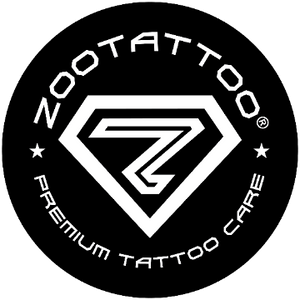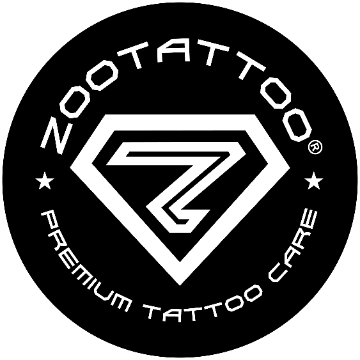Starting a tattoo business requires careful planning, here's how.

Starting a tattoo business requires careful planning, legal considerations, artistic talent, and a passion for the craft. The process can be complex, but here is a guide to help you navigate from start to finish.
Step 1: Learn the Craft
Before you consider opening a business, it’s crucial to have a solid foundation in tattooing. This usually involves:
- Apprenticeship: Work under an experienced tattoo artist to learn the techniques and skills required.
- Licensing: Most regions require tattoo artists to have a license, which involves passing exams and meeting certain health and safety standards.
- Building a Portfolio: Showcase your best work to attract clients and provide examples of your style and skill.
Step 2: Market Research
Conduct thorough market research to understand your potential customer base and competition. This includes:
- Demographics**: Who are the people who would likely patronize your shop?
- Competitors**: What are other tattoo shops offering, and how can you differentiate yourself?
- Trends**: Keep up with industry trends to see what styles or services are popular.
Step 3: Create a Business Plan
A well-thought-out business plan is your roadmap to success. It should cover:
- Executive Summary: An overview of your business and goals.
- Business Description: What your tattoo business will offer.
- Market Analysis: Details of your market research findings.
- Organization and Management: Your business structure and management team.
- Services: The types of tattoos and related services you’ll offer.
- Marketing Plan: How you’ll attract and retain customers.
- Funding Request: If you’re seeking financing, outline how much you need and how it will be used.
- Financial Projections: Include income statements, cash flow statements, and balance sheets for the next three-five years.
Step 4: Secure Financing
To start a tattoo business, you'll need capital. Options include:
- Savings: Using your own money is the simplest method, but it's not without risks.
- Loans: Bank loans, SBA loans, or lines of credit can provide the funds you need.
- Investors: Find business partners or investors who believe in your vision.
Step 5: Find a Location
Your shop's location is crucial. Consider:
- Visibility: A location that’s easily seen can attract walk-in clients.
- Accessibility: Make sure it’s easy for clients to get to your shop.
- Compliance: The space must meet local zoning laws and health regulations for tattoo businesses.
Step 6: Legal Considerations
Ensure your business is legally compliant:
- Business Structure: Decide whether your business will be a sole proprietorship, partnership, LLC, PTY LTD, or corporation.
- Permits and Licenses: Obtain all necessary permits and licenses to operate legally.
- Insurance**: Get liability insurance to protect against potential legal claims.
Step 7: Set Up Your Space
Your tattoo shop should be:
- Welcoming: Create a comfortable and inviting atmosphere.
- Sterile: Sterilization and cleanliness should be top priorities to ensure client safety.
- Functional: Design the space for efficiency and ease of use by artists.
Step 8: Purchase Equipment
Invest in quality tattoo equipment, including:
- Tattoo Machines: Good quality machines ensure better tattoo application.
- Inks and Needles: High-quality inks and disposable needles are vital.
- Furniture: Comfortable chairs for clients and workstations for artists.
Step 9: Hiring
If you’re not working alone, you’ll need to hire:
- Tattoo Artists: Look for skilled artists with a professional attitude.
- Support Staff: Receptionists and cleaning staff will help keep operations smooth.
Step 10: Marketing and Advertising
Create awareness about your shop:
- Branding: Develop a strong brand identity with a logo, signage, and promotional materials.
- Online Presence: Create a professional website and engage with clients on social media.
- Word of Mouth: Encourage satisfied customers to spread the word.
Step 11: Grand Opening
Plan a grand opening event to generate buzz:
- Soft Opening: A trial run can help work out any operational kinks.
- Promotions: Offer opening day discounts or bundle deals.
- Local Press: Get local influencers or press to cover the event.
Step 12: Manage and Grow
Once you’re up and running:
- Customer Service: Provide excellent service to keep clients coming back.
- Continuing Education: Stay updated with new techniques and safety protocols.
- Financial Management: Keep a close eye on your finances to ensure profitability.
Starting a tattoo business is not for the faint hearted, but for those with a passion for art and a commitment to entrepreneurship, it can be a rewarding venture. Remember, the key to success in this business is as much in your artistic skill as it is in your ability
Your journey in the tattoo business can be as unique as the art you plan to create, but there are universal steps that every aspiring tattoo entrepreneur should consider. Here's how you can start your own tattoo business from scratch.
Develop Your Skills and Style
Your first step is mastering the craft. This typically involves an apprenticeship with an experienced tattoo artist. Here, you will learn about designing tattoos, working with different skin types, and maintaining health and safety standards. Building a diverse portfolio will be crucial to attracting future clients.
Research and Plan
Conduct in-depth research into your local market. Understand your potential customers, study your competition, and stay abreast of the latest industry trends. Then, develop a comprehensive business plan outlining your vision, operational strategy, financial projections, and marketing plans.
Legalities and Compliance
Your tattoo business will need to comply with local regulations, which often include health department permits and a business license. Consider forming an LLC or corporation to protect your personal assets and understand the insurance you'll need to carry.
Finding the Perfect Location
Choose a location that's visible, accessible, and zoned for a tattoo business. Ensure the space is large enough for your artists and clients, with additional room for a waiting area and reception.
Designing Your Studio
Create a space that reflects your brand and is welcoming to clients. Invest in quality tattoo beds, artist chairs, proper lighting, and sterilization equipment. Remember, a clean studio is a safe studio.
Acquiring Quality Supplies
From tattoo machines to inks, needles, and aftercare products, using high-quality supplies is non-negotiable. This not only ensures better tattoos but is also essential for safety and compliance with health regulations.
Building a Great Team
Hire skilled artists that complement your studio's style and ethos. Look for individuals who are not only talented but also committed to providing a great customer experience.
Marketing Your Studio
Create a strong brand identity and build an online presence with a professional website and active social media profiles. Engage with local communities and consider collaborations with other artists or local businesses.
Grand Opening
Launch your business with a bang. Host a grand opening event to generate buzz, offer special promotions, and get local media involved if possible.
Managing Your Business
Use software to manage bookings and customer relationships efficiently. Keep track of finances with accurate bookkeeping and continuously seek feedback to improve your services.
Growing Your Brand
As your business stabilizes, look for opportunities to grow. This could mean expanding your team, offering new services, or even opening additional locations.
Starting a tattoo business is both an art and a science. It requires a combination of artistic talent, solid business acumen, and the ability to navigate the intricacies of the tattoo world. With careful planning and dedication, your studio can become a staple in your community and the tattoo industry at large.

This article was brought to you by ZOOTATTOO® The world's premium vegan aftercare balms, creams, adhesive wraps, and cleansers. We only use high quality exotic Australian Organic Hemp Oil and complimentary botanical ingredients for when you're healing tattoos, scalp micro-pigmentation and laser treated skin.You won't look back!
0 comments



